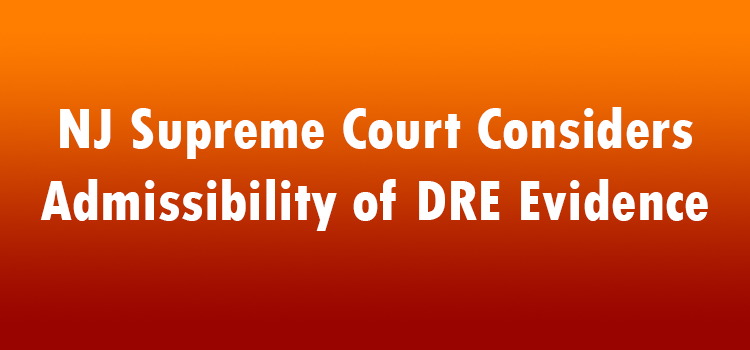The New Jersey Supreme Court recently heard oral arguments in a case concerning what type of evidence is admissible to show that a defendant was under the influence of narcotics while driving, specifically the admissibility of drug recognition expert (DRE) testimony. The court’s decision in State v. Michael Olenowski is likely to become increasingly relevant as the state seeks to legalize recreational marijuana use.

Facts of State v. Michael Olenowski
Defendant Michael Olenowski appeals his conviction for driving while intoxicated (DWI), N.J.S.A. 39:4-50(a), on two separate occasions in 2015. On both occasions, officers administered blood-alcohol content (BAC) tests, which revealed levels below the legal limit. Olenowski had a .04 percent BAC on the first occasion and a zero percent reading the second. Nonetheless, both the arresting officers and the DREs that evaluated him concluded that he was visibly impaired.
DREs are police officers who are specially trained to conduct a Drug Influence Evaluation (DIE). The evaluation is intended to identify the physical signs of drug intoxication by using a series of assessments, including standard field sobriety tests.
Olenowski challenged the admissibility of the DRE testimony, arguing that it is not reliable or generally accepted in the scientific community. When dealing with scientific evidence, New Jersey has adopted the Frye standard of admissibility as set forth in State v. Harvey, 151 N.J. 117, 169-70 (1997). Under the standard, the proponent of a newly-devised scientific technology can prove its general acceptance in three ways:
(1) by expert testimony as to the general acceptance, among those in the profession, of the premises on which the proffered expert witness based his or her analysis;
(2) by authoritative scientific and legal writings indicating that the scientific community accepts the premises underlying the proffered testimony; and
(3) by judicial opinions that indicate the expert’s premises have gained general acceptance.
The trial court ruled that DRE evidence was “generally acceptable and reliable in the scientific community.” The Appellate Division affirmed the decision. It found that that there was “sufficient credible evidence in the record” to support the Law Division’s findings that Olenowski was driving while intoxicated on both occasions.
Issues Before New Jersey Supreme Court
The New Jersey Supreme Court has agreed to decide the following question: “Is Drug Recognition Experts (DRE) evidence – which, in this case, included testimony that defendant was under the influence of narcotics while driving – admissible under the standard articulated in Frye v. United States, 293 F. 1013 (D.C. Cir. 1923)?”
During oral arguments, New Jersey Deputy Attorney General Sarah C. Hunt argued that the DRE methodology has already been reviewed by numerous courts and deemed reliable. “We’ve reached critical mass,” Hunt argued. “There’s simply no need to replay the same hearings over and over in every state, when this issue has been decided using the same protocol, using the same tests, and likely many of the same experts in so many of our sister states.”
Meanwhile, ACLU attorney Alex Shalom maintained that the protocol should be scrutinized under Frye because it has its basis in science. “‘Scientific’ doesn’t mean the person needs to wear a white lab coat. It’s not who is making the decisions,” he said. “‘Scientific’ means does it rely on the scientific method: observation, hypothesis, testing, iteration? That’s exactly what the DRE protocol does.”
